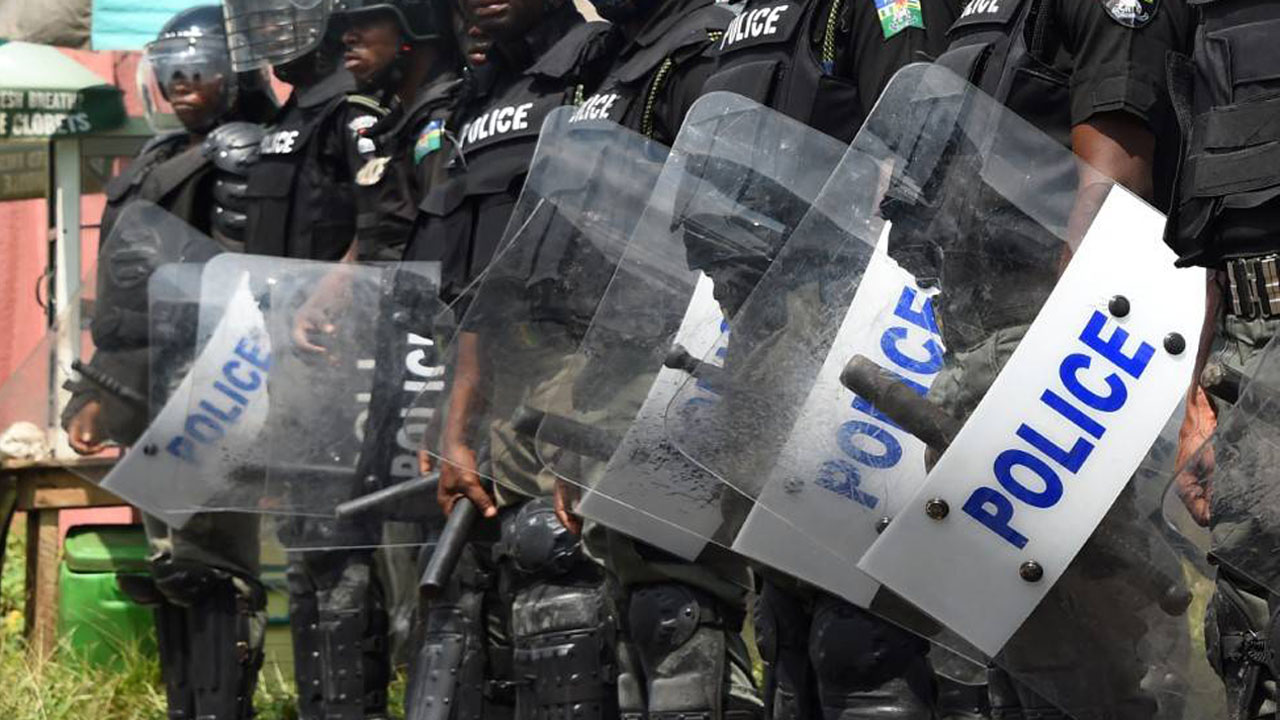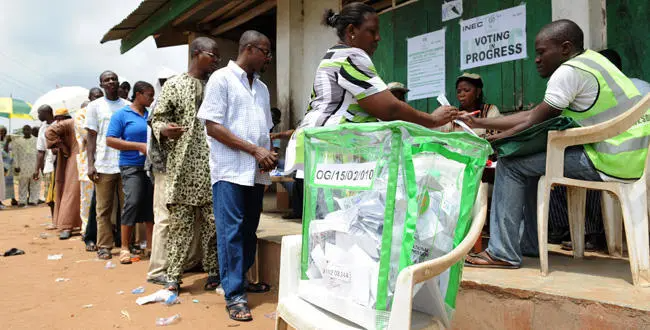[dailymotion code=”x8nz21w” autoplay=”yes”]
‘Many of the greatest crimes in history were caused not by hatred, but rather by indifference. They were caused by people who could have done something, but did not even bother lifting a finger. So don’t wait. Get out there….’
Yuval Noah Harari
As we are still deconstructing the complexity and implications of last Wednesday’s almost thirteen-hour Court of Appeal’s judgment on the 2023 presidential elections, it is important to note the word on marble above as it dealt us a blow ten years ago when a perceived electoral injustice claimed the life of a former Governor of Ondo State.
And so, as friends and relations honour the late Dr. Olusegun Agagu at the Civic Centre, Victoria Island Lagos, on Wednesday this week, let’s relive the significance of the story of a curious fake security report to a Court of Appeal that contributed to the untimely death of a leader who would have facilitated Olokola to be the host community of the Dangote Fertiliser and Refinery Complex in Ondo State.
In other words, the former Governor of Ondo State, Agagu was said to have died of hypertension as he returned from China that September 2013 because President Umaru Yar’Adua, Goodluck Jonathan and NJC did nothing about technical injustice the Court of Appeal meted to him despite his serious petition and discussions with the two leaders, which would have deepened electoral justice in the country since 2010. I wrote this same story as a companion piece titled, ‘Echoes of Police Report on 2007 Ondo ‘Guber’ Election’ on this page on 19 November, 2016: This is the story:
Not many people would remember that the late Dr. Olusegun Agagu was deeply troubled by former President Goodluck Jonathan’s recourse to political correctness by the way he (Jonathan) handled a very sensitive Police report on the 2007 Governorship Election in Ondo State.
Specifically, the special police report, which was not to cause a judicial review of the case decided by the Court of Appeal in Benin would have given the nation some insight into how some elected leaders secured dubious mandates from the judiciary then.
Specifically, Agagu had in May, 2010, addressed a petition to President Goodluck Jonathan claiming that the two judgments that removed him from power were essentially based on fake security reports. The former governor pleaded with Jonathan to order investigation of his claims. He wrote (in the petition): “My tenure as Governor of Ondo state was terminated on 23rd February, 2009 upon the verdict of the Court of Appeal sitting in Benin, which confirmed the ruling of the Justice Nabaruma-led Tribunal that awarded the gubernatorial elections of 14th April, 2007 to Dr. Mimiko of the Labour Party.
“Essentially, the verdict of the tribunal and the Appeal Court were based on the acceptance by the judges that elections in 10 LGAs where PDP won were marred with irregularities and violence and therefore cancelled over 63% of votes cast in these LGAs while retaining all the votes in the seven LGAs where Labour Party won. In both judgments, the decision of the judges was substantially based on the fake security reports purportedly written by The State Security Service (SSS), which flawed the elections only in the local government areas where I won.
“It must be emphasized that our lawyers objected to the admission of these purported SSS reports especially since the SSS officer subpoenaed stated clearly in the open Tribunal that the Department of State Security Service (SSS) did not have such reports. In spite of this, the judges still laid credence on the fake reports stating that the court is not concerned with how the evidence was obtained.”
The former governor had added in the petition that he was not interested in the judicial review of his case but that, “It is clear that if people who perpetrate forgery to pervert the course of justice and democracy and thereby change the course of lives of millions of people are allowed to go scot-free, they will be further emboldened to create even greater harm to our fledging democratic experiment.”
President Jonathan actually directed the police authorities to investigate the claims of Dr. Agagu, noting that such inquiries could curb corruption in the judiciary. The Police report was submitted to the government. What did government do with it? The answer is still blowing in the wind.
Report of the Police Special Investigation Unit (SIU) headed by an AIG confirmed that the security reports, which the Labour Party (LP) tendered before the Justice Nabaruma-led Ondo State Election Petition Tribunal to prove that its candidate, Governor Olusegun Mimiko, won the 2007 governorship election in the state were forged.
The report, entitled: “Police investigation report on a case of forgery and altering of State Security Service report”, said eight of the nine security reports presented by the LP before the tribunal were discovered to be fake. The then Director General of the SSS (now DSS) confirmed the forgery to the court and the Police Special Investigation Panel. The report, which was in the custody of the then Attorney General of the Federation, Mr. Mohammed Bello Adoke, was secretly released to Agagu only after Governor Mimiko had secured a second term, which began in February, 2013. Agagu died seven months after (September 13, 2013).
The report recommends that lawyers and Labour Party leaders who procured and tendered the fake security reports should be arrested and prosecuted. No one was arrested before President Jonathan and AGF Adoke left office in 2015.
Besides, Agagu wrote to then Chief Justice of Nigeria (CJN) on the basis of the findings of the Police Special Investigation Panel, which discovered that the security reports used by Mimiko to displace the former governor from power were forged. The then CJN did nothing through the NJC. This historical context indicates that unethical judicial intervention in the electoral process began long ago but when Agagu drew attention of the nation to it, the authorities under two presidents did nothing. Here we are today still complaining about electoral injustice, the bane of our democracy.
Meanwhile, we should note that Agagu actually sent the petition first to President Umaru Yar’Adua who was already battling with ill-health. He (Yar’Adua) who set up the Uwais Panel to review electoral system in his time following the controversy that trailed his election in 2007, did not address the Agagu’s petition before he joined his ancestors.
But the then President Jonathan who received the same report that would have made the alleged forgers of security documents to face the consequences of forgery dozed off at that critical time when technical injustice nurtured by an emerging dubious and unreliable electoral justice system stared us in the face. And here we are crying wolf in 2023 when the people still cannot decide who governs them until three to seven justices cast their ballot.
‘Then They Came For Onnoghen…’ Because of Election Petition…
IN the same vein, those who are asking questions about the roots of ‘technical justice over substantial justice’ too should note that the oracle had also warned about the consequences of allowing an Administrative Tribunal to remove the Chief Justice of Nigeria before the 2019 election. Let’s recall a bit of what I wrote on this page too on 27 January 2020: ‘Onnoghen and the elephant in the room:
https://guardian.ng/opinion/onnoghen-and-the-elephant-in-the-room/
I also repeated same context on April 7, 2019 in a piece titled, ‘Onnoghen, the morning after resignation’ and asked,…if they had indeed come for Justice Onnoghen as news broke that weekend that they had concluded plan to arraign Nigeria’s Chief Justice the following Monday for failure to declare his assets properly.
Now the battle for the soul of the judiciary ahead of elections – and election petitions hearing has been fought, lost and won. Justice Onnoghen has fought a good fight. But the strongmen have curiously defeated all of us and diminished democracy, not Onnoghen…’
It will be recalled then that Justice Onnoghen’s secret file at the Code of Conduct Tribunal was secretly opened to a private petitioner whose petition was treated to begin tribunal trial within 72 hours. Behold, the trials of Brother Walter dramatically entered a new phase at that weekend when the CJN reportedly tendered his letter or resignation ‘to save the judiciary’ – all in a curious desperation to win a second term for a president. Where were all the Senior Advocates of Nigeria (SANs) at that time when the state moved to capture the judiciary through an administrative tribunal called Code of Conduct Tribunal? What happened to four appeals filed by Adegboyega Awomolo (SAN) pending at the Court of Appeal then – to save the country’s CJN from executive reproach?
It will be recalled that till the present lamentation over ‘technical (in)justice’, no one has prosecuted anyone over the fake bank and estate records published by a newspaper, which quoted the EFCC as sources of its facts that Hon. Justice Onnoghen indeed had $3 million (USD) in a foreign account and had 55 houses to his name.Where is that SAN who had in a morning show satellite television claimed then to have had about 50 years of legal practice and could not boast of $10, 000 (USD) in his account whereas Justice Onnoghen allegedly kept $3 million in his? Will all the wailing ministers in the temple of justice today recall how Chief Awomolo (SAN) had then cried for the beloved country that abandoned its CJN to the unkindest executive attack even while foreign election observers were already in the country for 2019 election?
As we continue to dance on the graves of so many heroes of democracy, will the authorities and the civil society organisations remember to revisit the Report of the Police Special Investigation Unit (SIU) on the 2007 elections, which would have punished organisers and sponsors of electoral injustice in Africa’s most populous country?
And here is the takeaway from here: but for indifference by the two leaders then, Yar’Adua and Jonathan, the technical injustice we are complaining about today would have been dealt with between 2007 and 2010. This is therefore another time to remind the nation that if either President Yar’Adua or Jonathan had taken Governor Olusegun Agagu’s petition on electoral injustice seriously as leaders, those who touched off alleged electoral injustice at the Court of Appeal then the final arbiter on governorship election, would have been punished and lessons would have been learnt. It is not too late to revisit that report so that we can begin to deal with where the rain of electoral injustice began to beat us. The ‘rainmakers’ can still be identified and punished. That is one way of honouring the late Agagu who exposed one of the major sources of electoral impurities in 2010. Sleep well, Dr.Olusegun Agagu.






